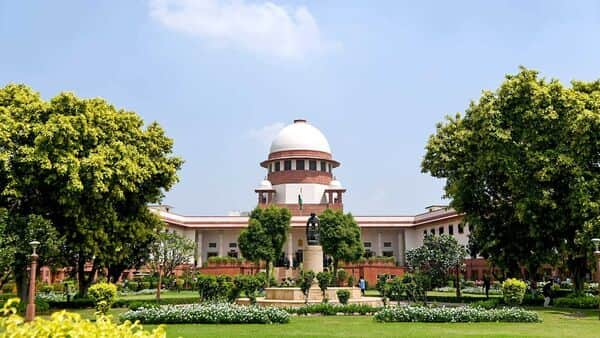Contends that an arrest can be made does not mandate that it ought to be made in every case and emphasised that the distinction between the existence of the power (to arrest) and the justification of exercising it must always be kept in mind. It is thus argued that the procedural requirements of Section 41A of the CrPC must always be followed in this regard. (Para 6)
In the present case, this Court is of the opinion that there are no startling features or elements that stand out or any exceptional fact disentitling the appellant to the grant of anticipatory bail. What is important is not that the matrimonial relationship soured almost before the couple could even settle down but whether allegations levelled against the appellant are true or partly true at this stage, which at best would be matters of conjecture, at least for this Court.(Para 12)
Before parting, the court would direct all the courts ceased of proceedings to strictly follow the law laid down in Arnesh Kumar (supra) and reiterate the directions contained thereunder, as well as other directions:
“I. 11. Our endeavour in this judgment is to ensure that police officers do not arrest the accused unnecessarily and Magistrate do not authorize detention casually and mechanically. In order to, ensure what we have observed above, we give the following directions:
11.1. All the State Governments to instruct its police officers not to automatically arrest when a case under Section 498-A IPC is registered but to satisfy themselves about the necessity for arrest under the parameters laid down above flowing from Section 41 CrPC;
11.2. All police officers be provided with a check list containing specified sub-clauses under Section 41(1)(b)(ii);
11.3. The police officer-shall forward the check list duly filled and furnish the reasons and materials which necessitated the arrest, while forwarding/producing the accused before the Magistrate for further detention;
11.4. The Magistrate while authorizing detention of the accused shall peruse the report furnished by the police officer in terms aforesaid and only after recording its satisfaction, the Magistrate will authorize detention;
11.5. The decision not to arrest an accused, be forwarded to the Magistrate within two weeks from the date of the institution of the case with a copy to the Magistrate which may be extended by the Superintendent of Police of the district for the reasons to be recorded in writing;
11.6. Notice of appearance in terms of Section 41-A CrPC be served on the accused within two weeks from the date of institution of the case, which may be extended by the Superintendent of Police of the district for the reasons to be recorded in writing;
11.7. Failure to comply with the directions aforesaid shall apart from rendering the police officers concerned liable for departmental action, they shall also be liable to be punished for contempt of court to be instituted before the High Court having territorial jurisdiction.
Authorizing detention without recording reasons as aforesaid by the Judicial Magistrate concerned shall be liable for departmental action by the appropriate High Court.
We hasten to add that the directions aforesaid shall not only apply to the case under Section 498-A IPC or Section 4 of the Dowry Prohibition Act, the case in hand, but also such cases where offence is punishable with imprisonment for a terms which may be less than seven years or which may extend to seven years, whether with or without fine.”
The High Court shall frame the above directions in the form of notifications and guidelines to be followed by the Sessions courts and all other and criminal courts dealing with various offences.
Likewise, the Director General of Police in all States shall ensure that strict instructions in terms of above directions are issued. Both the High Courts and the DGP’s of all States shall ensure that such guidelines and Directives/Departmental Circulars are issued for guidance of all lower courts and police authorities in each State within eight weeks from today.
Affidavits of compliance shall be filed before this court within ten weeks by all the states and High Courts, though their Registrars. (Para 12)
SUPREME COURT JUDGMENT
2023 STPL(Web) 123 SC
Md. Asfak Alam Appellants Vs. State of Jharkhand & Anr. Respondents
Criminal Appeal No(s). 2207 of 2023[Arising Out of Special Leave Petition (Crl.) No. 3433 of 2023]-Decided on 31-7-2023
https://stpllaw.in/wp-content/uploads/2023/08/2023-STPLWeb-123-SC.pdf







